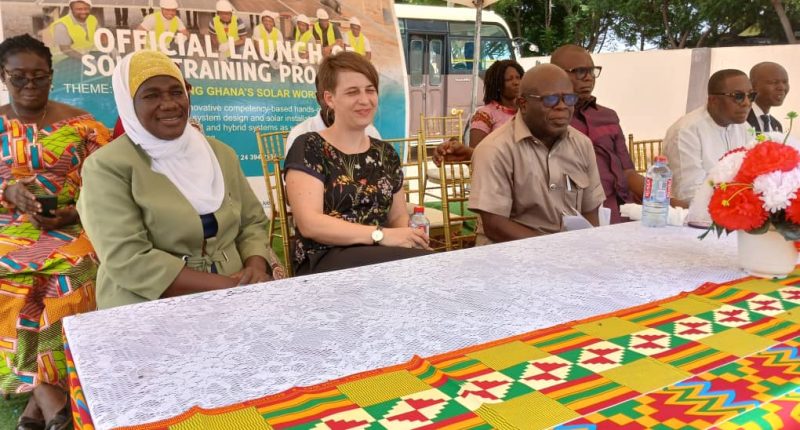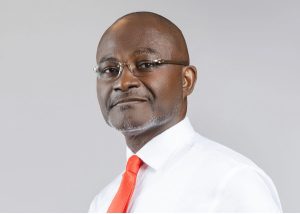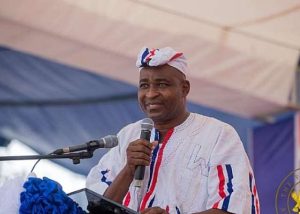The Principal of the Applied Technology Institute Engineer Emmanuel Kotey Ashie, Principal has emphasized that integrating solar system education into Technical and Vocational Education and Training (TVET) schools is a strategic move to address Ghana’s intermittent power challenges.
He pointed out that there is a high demand for electricity in both households and industries, yet hydroelectric power is not meeting the required output. Educating students on solar panel installation will help supplement hydroelectric power, thereby balancing the power supply and demand.
Ashie shared these insights at the Official Launch of the Solar Training Project, themed “Empowering Ghana’s Solar Workforce.”
An International project manager of the Partner Africa project of UmweltZentrum, Schmidt Carola said the training will improve Ghana’s energy sector.
She advised the youth to take the training seriously stating that, it would provide them with electrical knowledge and enhance their standard of living.
The training is structured to give women the opportunity to exploit the energy sector.
They were encouraged to take advantage of it and broaden their horizon to be able to compete in the workspace to better their lives.
Sequa a non profitable Organisation incollaboratiom with pĺ collaboration with Partner Africa Project has launched a solar training initiative in Accra, aimed at empowering Ghana’s solar ùenergy workforce and propelling the country to become a hub for greener and renewable energy in West Africa.
About 300 participants across the country including students in vocational training are targeted to be given this skill training.
The aim is to empower them with the technology for sustainable green energy. The implementing agency, Sequa, has been implementing international cooperation projects and programs since 1991.
The company is headquartered in Bonn, Germany. It has a goal of improving the living and working conditions of many people as possible.
The skill training program is on the theme of collaborating with the private sector to promote employment and enhance working conditions in the electrical sector with a spotlight on solar PV.
It will cover areas such as off-grid, on-grid, hybrid, and solar systems. The Deputy Director for Training and Development at the Ghana TVET Service, Philibeth Nkrumah stressed that collaboration between the private and the public sector is necessary in resolving the unemployment crisis while boosting Ghana’s renewable energy drive.
Some of the students of the Applied Technology Institute in East Legon also expressed their gratitude for the program, highlighting that it will equip them with entrepreneurial skills and provide alternative power solutions to address the electricity issues in their communities.









